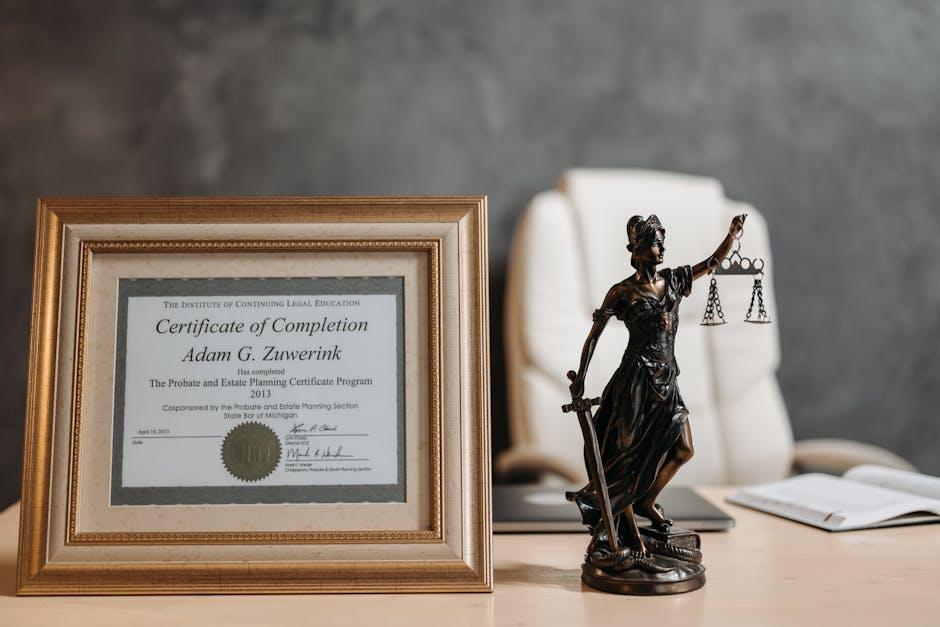In the intricate tapestry of financial management, estate planning emerges as a critical yet often overlooked thread, essential for the preservation of wealth across generations. As individuals amass assets over their lifetimes, the question of how to protect and transfer this wealth becomes paramount. Estate planning, with its strategic framework, offers a robust mechanism to navigate the complexities of asset distribution, tax implications, and legal considerations. This analytical exploration delves into the multifaceted benefits of estate planning, underscoring its role as a cornerstone in safeguarding financial legacies. With an ever-evolving economic landscape and shifting regulatory environments, the importance of proactive estate planning has never been more pronounced. Through informed decision-making and meticulous planning, individuals can ensure their wealth not only endures but also flourishes, securing a stable financial future for their heirs.
Understanding the Fundamentals of Estate Planning
At its core, estate planning is a strategic process designed to manage and distribute an individual’s assets in the event of their incapacity or death. This meticulous planning encompasses a variety of legal tools and documents that are essential for safeguarding one’s wealth. Key components of a robust estate plan often include:
- Wills: Outlines the distribution of assets and appoints guardians for minor children.
- Trusts: Provides control over asset distribution and can offer tax advantages.
- Power of Attorney: Designates someone to make financial and legal decisions if incapacitated.
- Healthcare Directives: Specifies medical treatment preferences and appoints a healthcare proxy.
Effective estate planning is crucial for minimizing tax liabilities and ensuring that wealth is transferred smoothly to the next generation. By proactively addressing these elements, individuals can avoid the pitfalls of probate, reduce family conflicts, and ensure their legacy is preserved according to their wishes. In an era where financial landscapes are continually evolving, having a comprehensive estate plan is not just beneficial—it’s essential.

Strategic Tools for Effective Wealth Preservation
In the realm of estate planning, a variety of strategic tools are essential for ensuring that wealth is not only preserved but also optimized for future generations. One critical component is the establishment of trusts, which can provide significant advantages such as tax efficiency, asset protection, and controlled distribution of assets. Trusts can be tailored to meet specific needs, whether it’s a revocable trust for flexibility during one’s lifetime or an irrevocable trust for more robust protection against creditors and estate taxes.
Another pivotal tool in the arsenal of wealth preservation is life insurance. This not only offers a safety net for beneficiaries but also serves as a strategic vehicle for transferring wealth in a tax-advantaged manner. Furthermore, the implementation of power of attorney documents ensures that financial and healthcare decisions are made according to one’s wishes, thus safeguarding assets from potential mismanagement. Consider incorporating the following elements into your estate planning process:
- Advanced Directives: Ensure medical preferences are respected.
- Gifting Strategies: Minimize tax liabilities while supporting heirs.
- Regular Review: Adapt plans to reflect changes in life circumstances or legislation.
Mitigating Risks Through Comprehensive Estate Strategies
In the realm of estate planning, a proactive approach to risk mitigation can significantly enhance the preservation of wealth across generations. By implementing a comprehensive strategy, individuals can safeguard their assets from unforeseen events and ensure a seamless transition of wealth. A well-crafted estate plan not only addresses the distribution of assets but also incorporates measures to protect against potential risks such as tax liabilities, legal disputes, and financial mismanagement.
Key elements of an effective estate strategy include:
- Trust Formation: Establishing trusts can help manage and protect assets, offering a layer of security against creditors and reducing estate taxes.
- Insurance Solutions: Incorporating life and liability insurance can provide financial cushioning against unexpected expenses and losses.
- Asset Diversification: Diversifying investments across different asset classes can minimize the impact of market volatility.
- Regular Review: Periodically reviewing and updating the estate plan ensures it remains aligned with current laws and personal circumstances.
By integrating these components into an estate plan, individuals can effectively mitigate risks and fortify their legacy for future generations.
Maximizing Tax Efficiency in Estate Planning
When it comes to preserving wealth across generations, structuring your estate plan to minimize taxes is paramount. Tax efficiency in estate planning can significantly reduce the erosion of your assets due to federal and state taxes. This involves a meticulous approach to asset allocation, leveraging tax exemptions, and utilizing strategic tools such as trusts. By doing so, you not only ensure that more of your wealth is passed on to your beneficiaries, but you also maintain greater control over how those assets are distributed.
Consider implementing the following strategies to optimize your estate for tax efficiency:
- Gifting: Take advantage of annual gift tax exclusions to transfer wealth tax-free.
- Trusts: Establish irrevocable trusts to remove assets from your taxable estate.
- Charitable Donations: Utilize charitable remainder trusts to reduce estate taxes while supporting your favorite causes.
- Life Insurance: Use life insurance policies to provide liquidity for estate taxes and other expenses.
By integrating these techniques into your estate plan, you not only safeguard your legacy but also fortify your financial foundation for future generations.



